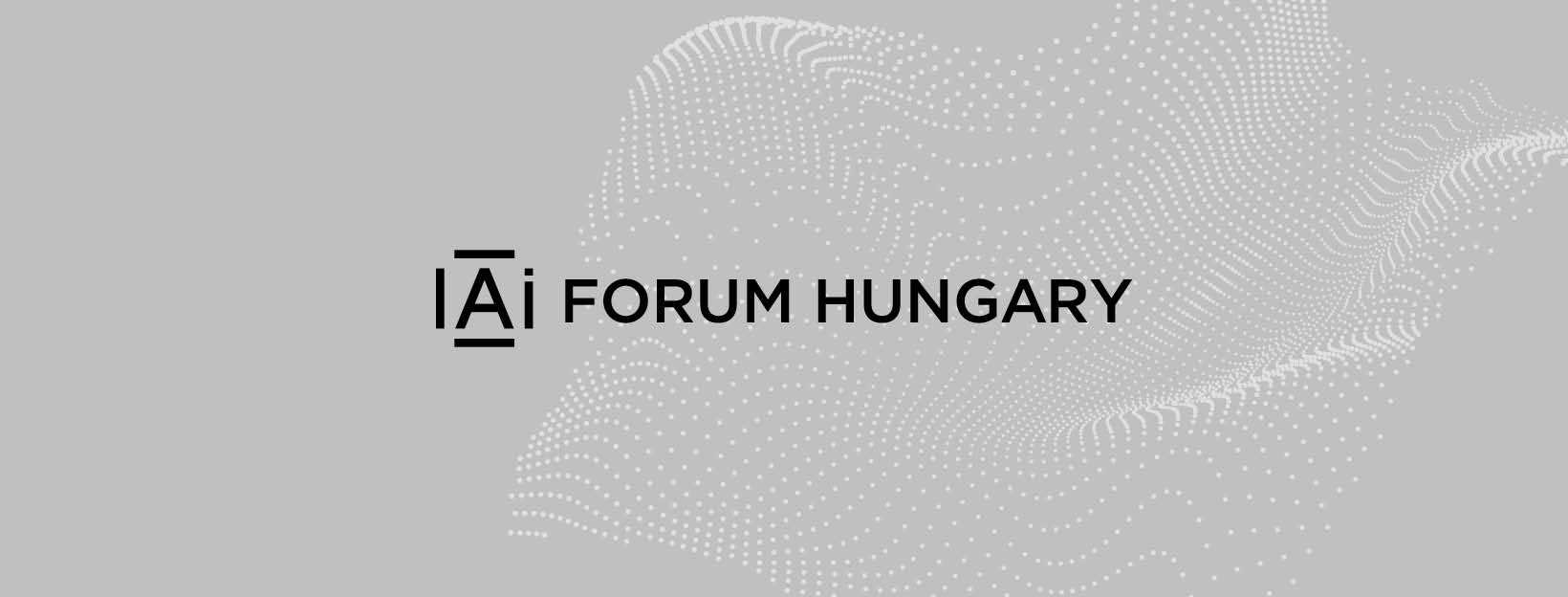BUDAPEST, FRIDAY 8 DECEMBER 2017
The inaugural conference of the Artificial Intelligence Forum Hungary took place in Budapest on Friday 8 December 2017.
The conference drew together a wide variety of interested stakeholders, including representatives of large international consultancy firms, AI developers, representatives from the legal profession, government, academic and technical researchers and members of the think tank community. Indeed, this ‘cross-cutting’ representation did much to widen the scope of the discussions and provided a platform for healthy debate.
The first phase of the conference very much focused on the mechanics of AI and reflected on a number of key applications, particularly in the medical profession. Two speakers addressed a number of developments within the medical environment; a medical professional from the USA described a myriad of medical-related tasks that lent themselves to AI solutions, whilst an international consultancy specialist offered a fascinating insight into some of the current and future AI medical applications ranging from detailed scanning imagery to host of medical equipmen. When taken alongside the research and development of the university community, which offered an insight into the relationship between research and application, it was possible to gain some transparency into the process by which beneficial AI theory can emerge in practice.
As the conference moved into the second phase, additional emphasis was placed on the economic relationship between AI and product design. A speaker from a leading AI company provided a fascinating overview of the global AI application market and Europe’s role. As this market develops, it was suggested that the impact would be considerable and inevitably influence so much of our economic and social norms. This perspective was reinforced by another speaker from a large multi-national consultancy firm who not only described how this emerging market would have to be serviced but how new products and services would inevitably require imaginative solutions along the application and development chain, spanning research and development, logistics and maintenance, not to mention investment and product placement. This nexus between research and design and commercial development was reinforced by the first of two university representatives, who clearly appreciated the close relationship between design, development and product placement. Universities were, it was stated, key hubs and incubators of not only research but living and fluid design. However, in a somewhat counterblast of opinion, another academic made a clarion call for such relationships not to develop at the expense of ‘liberal learning’: imagination and research on AI application should not be restricted to those who write code or program computers but could also emerge form the liberal arts, especially in terms of wider insight and philosophical investigation offered by humanities departments.
After lunch, the conference opened up on the third phase of discourse, which focused on AI and the law. Having a number of lawyers present – both academic and professional – ensured the debate was lively and instructive. The first legal presentation focused on the issue of AI and ‘Big Data’ bias, a subject much discussed in the media. It soon became evident that the more insightful the speaker was on the nature of AI analytics and the construction of special ‘legal’ support applications, the greater the potential risk of misuse and misapplication. It was argued that future regulation on the use of such applications should be considered.
The debate about our legal future continued with another legal specialist pondering on some unique challenges brought about through the introduction of driverless cars. This opened up a fascinating debate on where the onus might lie on legal rights and indeed in some tangential circumstances, might reflect on machine rights. To say that this generated healthy debate would have been an understatement. However, the whole legal subject was neatly concluded by a senior US Federal Judge who was able to call on various examples of legal support tools using AI applications and a number of very acute court cases involving major exponents of AI and internet applications. In short, the future of the law and AI is in its infancy and one should anticipate much more on this subject.
The conference concluded with a final fourth session, which sought to posit some concerns, which could arise from the exploitation of AI. A government official spoke fluently and knowledgeably on the future of our society and its interface to AI applications ranging from ‘Skynet’ and the so-called ‘internet of things’ to ‘megapolis’ and e-government. There was no escaping AI in the future but the speaker noted that accommodation could afford humanity some significant social advantages should we prudently manage our affairs. Another academic specialist provided a fascinating insight into the impact of AI on life sciences – ranging from gene sequencing to the creation of new life forms. It was clearly evident that developments in AI have made much of this possible but what was equally clear was the fact that regulation would be a necessary pre-requisite given that elements of this research had the potential to distort humanity’s future.
The conference concluded on the subject of AI and existential risk. A specialist on risk assessment provided the equivalent of a philosophical enquiry into how AI existential risk is currently processed and how the process used is less than satisfactory. The speaker made a plea for more rigor in the process of risk assessment and the involvement of a wider spectrum of stakeholders. The speaker noted that those working intimately in AI research seemed to be missing from the debate but that their perspective was crucial. In conclusion, it was suggested that greater philosophical and ethical introspection was required in order to prevent another ‘Manhatten Project’ developing, particularly in relation to the rise of Lethal Autonomous Weapon Systems’ which had the potential to be a humanity ‘game changer’.
The conference ended with agreement that the Artificial Intelligence Forum Hungary was an initiative worthy of further support and development.
